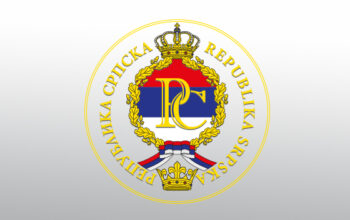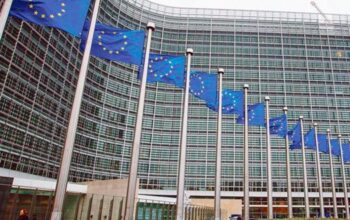The government of Republika Srpska sent an open letter yesterday to all foreign ambassadors accredited to BiH, arguing that the planned referendum on the RS national day is “fully in accordance” with BiH law and regulations.
Referenda are fully consistent with the BiH Constitution and the practice of democratic states throughout Europe and around the world. The Dayton Accords contain no provisions that could possibly be interpreted as prohibiting or restricting referenda.
Moreover, as the Council of Europe’s Parliamentary Assembly said in a 2007 resolution, “Referendums are an instrument of direct democracy which belong to the European electoral heritage.” The Council of Europe’s Congress of Local and Regional Authorities recognized in a 2007 resolution that “referendums, whether at national, local or regional level, constitute one of the main instruments of direct democracy giving citizens the possibility to take part in political decision making as well as in public matters which directly concern them…”.
The letter continues by pointing out that the planned referendum is intended as “a step toward implementing” the BiH Constitutional Court’s ruling on the RS national day.
Although Republika Srpska disagrees with the Constitutional Court’s decision in important respects, the referendum is nonetheless intended as a step toward implementing it. The decision’s only express order is that the RSNA “harmonize” Article 3(b) of the Law on Holidays with the BiH Constitution. It does not state that the RSNA must abolish the 9 January holiday or otherwise specify what is required for harmonization. Republika Srpska is confident that Republic Day can be celebrated without discriminating against any religion or ethnic group.
The letter also takes up clear legal issues with the popular interpretations of the Constitutional Court’s ruling:
If the Constitutional Court’s decision were to be interpreted as forbidding the January 9 Republic Day holiday because it coincides with the Orthodox feast of St. Stephen, that would require all public holidays that mark religious feasts—or even coincide with religious feasts—to be banned. For example, the public holidays marking Muslim feasts like Eid al-Fitr and Eid al-Adha, observed in Bosniak-majority cantons of the Federation, would have to be abolished. Public holidays marking Catholic feasts like Christmas and St. Stephen’s Day, observed in Croat-majority cantons of the Federation, would have to be abolished. It would be peculiar indeed if the Catholic St. Stephen’s Day (26 December) were permitted as a public holiday while the 9 January Republic Day holiday is forbidden merely because it coincides with Orthodox St. Stephen’s Day….
If the Constitutional Court’s decision were interpreted as forbidding the Republic Day holiday because it allegedly favors one ethnic group over others, it would certainly also require forbidding the Federation’s 1 March celebration of “Independence Day.”
The Federation’s 1 March public holiday marks the anniversary of the 1992 referendum through which Bosniaks and Croats voted for Bosnia and Herzegovina to unilaterally secede from Yugoslavia. Serbs strongly objected to the referendum and did not participate in the referendum itself. Today, Serbs consider 1 March to be the anniversary of an illegitimate referendum that tore the Serbs of Bosnia and Herzegovina away from their country, Yugoslavia, and led to the outbreak of war. The Federation’s 1 March holiday “favors” Bosniaks and Croats at least as much as Republika Srpska’s 9 January holiday “favors” Serbs.


